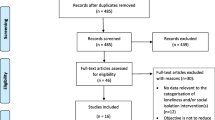Abstract
A just social arrangement must guarantee a right to health care for all. This right should be understood as a positive right to basic human functional capabilities. The present article aims to delineate the right to health care as part of an account of distributive justice in health care in terms of the sufficiency of basic human functional capabilities. According to the proposed account, every individual currently living beneath the sufficiency threshold or in jeopardy of falling beneath the threshold has a legitimate claim to justice. People’s entitlements to health care should not be determined on the basis of brute luck and their efforts to maintain healthy lifestyles. The prioritization of competing claim-rights of individuals is guided by two allocation principles: number and benefit-size weighted sufficiency (among people beneath the threshold) and need-weighted utilitarianism (among people above the threshold).
Similar content being viewed by others
Notes
Ram-Tiktin, E, Distributive justice in health care: Sufficiency of capabilities approach (in progress).
Of course, not every life plan and not every course of realization is considered legitimate in a free society.
There is some ambiguity in Nussbaum’s writing, since, on the one hand, she wishes to achieve equality of capabilities, but, on the other, refers to a good enough human life threshold. However, I will not address this problem here.
According to Ronald Dworkin, concrete rights “are political aims that are more precisely defined so as to express more definitely the weight they have against other political aims on particular occasions” (1977, p. 93).
Because of the two distinct aspects of health and illness, I presented four definitions as part of my theory: “health” and “illness” for the value-laden aspect, “intactness” and “malady” for value-free aspect. For a full discussion and definitions of those concepts, see Ram-Tiktin (2009), chap. 6; in progress (see note 2).
Nussbaum (2006) also addressed that question and firmly asserted that we should use only one threshold. She provided two arguments that align with my argument. The first is strategic: If we set a lower threshold, the medical institutions will make less effort to improve those individuals’ well-being. The second is normative: one threshold for everyone reminds us of the dignity owed to both the mentally and terminally ill. It obliges us to see them as equal members of the human community entitled to a good human life despite their impairments.
Yitzhak Benbaji (2006) presented a multilevel, non-absolutist, homogeneous version of the doctrine of sufficiency and listed three thresholds: personhood, pain, and luxury.
For simplicity, I am keeping the number of beneficiaries constant, thereby focusing on the more relevant criteria of the discussion.
Personal responsibility for one’s health could be relevant in micro-allocation (that is, in prioritizing among patients of the same group), but I will not discuss this aspect in the present article.
In cases of plastic surgery due to aesthetic considerations, if there is evidence that the patient is emotionally unsound and experiences considerable difficulty integrating socially due to his/her appearance, then he/she should be considered located beneath the threshold and thus having a claim-right to plastic surgery.
References
Aristotle (1998) The Nicomachean ethics. Trans. by David Ross. Oxford University Press, Oxford
Arneson RJ (2000) Luck egalitarianism and prioritarianism. Ethics 110(2):339–349. doi:10.1086/233272
Benbaji Y (2006) Sufficiency or priority? Eur J Philos 14(3):327–348. doi:10.1111/j.1468-0378.2006.00228.x
Daniels N (1991) Equal opportunity and health care rights for elderly. In: Bole TJ, Bondeson WB (eds) Rights to health care. Kluwer Academic Publishers, Dordrecht, pp 201–212
Daniels N (2008) Just health: meeting health needs fairly. Cambridge University Press, Cambridge
Dworkin RM (1977) Taking rights seriously. Harvard University Press, Cambridge
Frankfurt H (1988) The importance of what we care about: philosophical essays. Cambridge University Press, Cambridge
Kurzban R, Weeden J (2005) HurryDate: mate preferences in action. Evolution Hum Behav 26:227–244. doi:10.1016/j.evolhumbehav.2004.08.012
Nussbaum MC (1988) Nature, function, and capability: Aristotle on political distribution. Oxf Stud Anc Philos—suppl. vol: 145–184
Nussbaum MC (1990) Aristotelian social democracy. In: Douglass RB, Mara GM, Richardson HS (eds) Liberalism and the good. Routledge, New York, pp 203–252
Nussbaum MC (1992) Human functioning and social justice. Political Theory 20(2):202–246. doi:10.1177/0090591792020002002
Nussbaum MC (2000) Women and human development—the capability approach. Cambridge University Press, Cambridge
Nussbaum MC (2006) Frontiers of justice: disability, nationality, species membership. Harvard University Press, Cambridge
Pawlowski B, Jasienska G (2005) Women’s preferences for sexual dimorphism in height depend on menstrual cycle phase and expected duration of relationship. Biol Psychol 70:38–43. doi:10.1016/j.biopsycho.2005.02.002
Perisco N, Poslewaite A, Silverman D (2003) The effects of adolescent experience on labor market outcomes: The case of height. Penn Institution for Economic Research. http://www.econ.upenn.edu/system/files/03-036.pdf. Accessed May 22, 2011.
Ram-Tiktin E (2009) Distributive justice in health care. Dissertation, Bar-Ilan University, Israel.
Ram-Tiktin E (2011) A decent minimum for everyone as a sufficiency of basic human functional capabilities. Am J Bioeth 11(7):24–25. doi:10.1080/15265161.2011.577512
Segall S (2009) Health, luck, and justice. Princeton University Press, Princeton
Sen A (1980) Equality of what? In: McMurrin SM (ed) The Tanner lectures on human values—vol. 1. University of Utah Press, Salt Lake City, pp. 197–220.
Sen A (1985) Commodities and capabilities. North Holland, Amsterdam
Sen A (1990) Justice: means versus freedom. Philos Public Aff 19(2):111–121
Sen A (1993) Capability and well being. In: Nussbaum MC, Sen A (eds) The quality of life. Oxford University Press, New York, pp 30–53
Sen A (2009) The idea of justice. Belknap, Cambridge
Temkin LS (2001) Inequality: a complex, individualistic, and comparative notion. Philos Issues 11(1):327–353. doi:10.1111/j.1758-2237.2001.tb00049.x
Wilkinson RG (1996) Unhealthy societies—the afflictions of inequality. Routledge, London
Williams B (1987) The standard of living: interests and capabilities. In: Hawthorn G (ed) The standard of living. Cambridge University Press, Cambridge, pp 94–102
Author information
Authors and Affiliations
Corresponding author
Rights and permissions
About this article
Cite this article
Ram-Tiktin, E. The Right to Health Care as a Right to Basic Human Functional Capabilities. Ethic Theory Moral Prac 15, 337–351 (2012). https://doi.org/10.1007/s10677-011-9322-7
Accepted:
Published:
Issue Date:
DOI: https://doi.org/10.1007/s10677-011-9322-7




